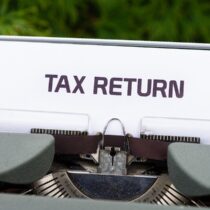
401(k) withdrawal rules can be fairy complex. Many factors come into play when determining if you can, or should, withdraw from your 401(k) plan. In this blog, we will answer many of the frequently asked questions we hear about 401(k) withdrawals.
What are the 401(k) withdrawal rules?
Typically, 401(k) accounts are for retirement, and withdrawals prior to age 59.5 are taxed and include a 10% early withdrawal penalty. But, as with all tax rules, there are exceptions. The IRS has specific withdrawal rules for all retirement accounts, which are important to consider. In addition, each 401(k) plan has what’s called a “Summary Plan Description,” which lays out that specific plan and the rules associated with withdrawals from it. You are more limited on options if you are trying to withdraw from a 401(k) while still employed by a company.
How can I withdraw money from my 401(k) without penalty?
The main way to avoid a penalty is to wait until you are 59.5-years-old before withdrawing from your 401(k) account.
There are a few reasons you can withdraw money from a 401(k) prior to 59.5 without incurring a penalty. These include disability, death, and Equal Payments (IRS code 72t).
A few other less common exceptions to the 10% early withdrawal penalty is in the event of a Qualified Domestic Relations Order (simply put, a divorce decree awards an ex-spouse a portion of your 401(k)) and unreimbursed medical expenses that exceed 10% of your AGI.
Can I just withdraw money from my 401(k)?
This depends. If you are still working for the employer, it is likely the employer has rules on the plan for withdrawals. Some employers do not allow in-service withdrawals at all.
Some employers allow hardship distributions from the account. These withdrawals, unless made from a Roth 401(k), are generally taxed and incur a 10% early withdrawal penalty. They are limited to the amount necessary to cover the immediate and heavy financial need. It is up to the employer to determine if the employee qualifies for this withdrawal.
If you are not still working for the employer, you generally can withdraw money from your 401(k) plan, but not without penalty if the withdrawal is not used for any of the IRS 401(k) qualified exceptions discussed above.
How long does it take to get money from 401(k) withdrawal?
This depends on the plan and the employer rules with the plan. This can take anywhere from days to weeks depending on the plan. You will need to ask your employer and the plan administrator to find out the timeline for 401(k) withdrawals.
What is the cost if I withdraw my 401(k) early
The typical early withdrawal penalty is 10%. This 10% is on top of income taxes you pay on the withdrawal. This can be a costly decision, so ensure you have exhausted all other options before deciding to take money from a 401(k) early.
At what age is 401(k) withdrawal tax free?
Age 59.5 OR the year in which the employee is age 55, if separated from service.
Do I pay taxes on 401(k) withdrawal after age 60?
Unless it is a Roth 401(k) account, you will pay income taxes on withdrawals from a 401(k) regardless of age. This is because while adding to this account, taxes were not paid. You added to it on a tax-deferred basis. Taxes are only deferred for as long as the money remains in the account. If you are age 60 or older, you will not have to pay the early withdrawal penalty when you withdraw money from a 401(k).
Do I pay state taxes on 401(k) withdrawal?
401(k) withdrawals are considered income. If you live in a state with income tax, you will have to pay state income tax on the 401(k) withdrawal.
How do I report a 401(k) withdrawal on my tax return?
You should receive a form 1099-R from the 401(k) administrator. This form will show how much you withdrew and how much they withheld in taxes from the withdrawal (typically 20%). You will enter this on your tax return software similar to how you enter income from a W-2.
Why would a 401(k) withdrawal be denied?
Some employer plans do not allow for in-service withdrawals. If you are still working for the employer, you may not be able to simply withdraw funds. You could check to see if your employer allows loans from the plan.
Why would a 401(k) withdrawal be denied?
Some employer plans do not allow for in-service withdrawals. If you are still working for the employer, you may not be able to simply withdraw funds. You could check to see if your employer allows loans from the plan.
Can a company keep you from withdrawing your 401(k)?
If you are still employed with the company, the plan can deny you in-service withdrawals. Each plan has its own rules and regulations, and some are more strict than others on in-service withdrawals. Some do not allow them at all. Some allow loans from 401(k)s while others do not. Some plans also allow for hardship withdrawals and some do not. There is no rule that forces a company to give you access to your 401(k) while still employed.
Do you need a reason to withdraw from 401(k)?
This depends on the plan. Some plans allow hardship withdrawals only, and no other type. Some only allow loans. And some allow nothing. It is important to talk to your plan administrator to find out what the rules of your plan are.












Comments are closed.